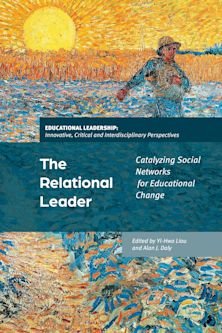- Home
- ACADEMIC
- Education
- Sociology of Education
- Towards the Sociology of Truth
Towards the Sociology of Truth
This product is usually dispatched within 10-14 days
- Delivery and returns info
-
Free UK delivery on orders £30 or over
You must sign in to add this item to your wishlist. Please sign in or create an account
Description
It covers issues in the sociology of knowledge, the educational system and policy, social differences in educational attainment, educational research and teaching. At various points it critically engages with the ideas of major thinkers such as Durkheim, Bernstein and Bourdieu and others and draws on contributions representing an emerging new approach in the sociology of education associated with recent work by John Beck, Karl Maton, Johan Muller, Michael F.D. Young and others.
This provocative and challenging book will undoubtedly stimulate debate among educationists across the world.
Table of Contents
Introduction
Chapter 1
Chapter 2
Chapter 3
Chapter 4
Chapter 5
Product details
| Published | 01 Jul 2009 |
|---|---|
| Format | Hardback |
| Edition | 1st |
| Extent | 178 |
| ISBN | 9781847062284 |
| Imprint | Continuum |
| Dimensions | 234 x 156 mm |
| Publisher | Bloomsbury Publishing |
Reviews
-
'Towards the Sociology of Truth should be read by every sociologist of education. It is an argument for a social realist account of knowledge, an attempt to wrestle with and reconcile some of the deep fissures in sociological thinking, and a reclamation of all that is best in the discipline through an analytical history of its intellectual antecedants. This book will prove a challenge to many in the discipline and, because it cannot be ignored, will be indispensable to debates about the nature of sociology of education and the claims to knowledge that it makes.' Hugh Lauder, Professor of Education and Political Economy, University of Bath, UK
-
'A provocative examination of the key issues in the sociology of education and the sociology of knowledge. Drawing upon his thorough knowledge of both fields, Moore demonstrates that these too often separate subfields in sociology need to be linked together analytically in order to understand ongoing debates about absolutism and relativity. Through a penetrating examination of the development of New Sociology of Education in the 1970s and subsequent theoretical discussions, Moore provides us with an understanding of how knowledge is the product of a complex set of social forces and that dualistic conceptions of objectivity and subjectivity are more complex than the methodological debates suggest. If this were not enough, Moore provides illuminating analyses of both Bernstein and Bourdieu, which show how each contributed immensely to these debates.' Alan R. Sadovnik, Professor of Education, Sociology and Public Affairs, Rutgers University, USA



































